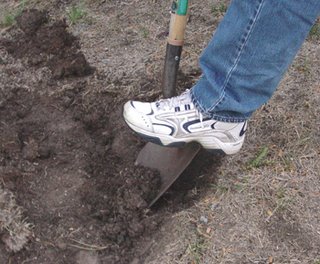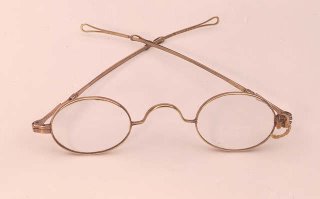 Dwindling Globe
Dwindling GlobeThe capacity of nature to surprise, to create wonder and to search beyond the known and familiar led to many editorials by F W Boreham that commended the fostering of these qualities. He wrote numerous articles about Australia’s early explorers and noted the exploits of Ernest Shackleton and Douglas Mawson to the Southern Pole but by 1919 Boreham declared that with the large number of exploratory expeditions to previously unknown countries, including the poles, “We are living on a dwindling globe”.[1]
In 1922, he cited the advances in locomotive travel as contributing to the contraction of the world and as examples of the human achievements that had brought about “the relativity of the impossible”.[2] In 1933, he wrote that the aerial conquest of Everest was “an appealing foretaste of ultimate victory” which illustrated that “the dominant triumph of humanity has consisted in the gradual elimination of the impossible”.[3] Many times, in view of the human conquests in so many spheres of the earth, Boreham had asked, “Is the age of exploration past?”[4]
Exploration Days not Over
Nevertheless, Boreham contended that, “the great days of exploration are not behind us”.[5] Drawing up an agenda for exploration, he wrote in 1921 that “our [geological] knowledge amounts to a certainty of ignorance”,[6] in 1931, he declared that the ocean “remains one realm on the planet, the exploration of which has been scarcely begun”,[7] and in 1942, he noted that there were continents such as South America that were relatively unexplored.[8] Furthermore, following earthquakes in Sicily (1914), Japan (1923) and New Zealand (1931)[9] and after reporting that, “Mt Etna has again lost its temper”,[10] Boreham suggested that in seismology and volcanology “we have still much to learn”[11] and that “the world in which we live is a packet of illusions”.[12] In 1951, on the one-hundredth anniversary of the survey proving Mt Everest to be the world’s highest mountain, Boreham said, “It would be simply crushing if we were assured that nothing remained to be discovered”.[13]
Telescope and Microscope
F W Boreham was enamored with Leonard Darwin’s view about there being two classes of explorers, those who explored new continents and those who made detailed and systematic studies of smaller areas.[14] While recognizing the large spheres still to be explored and affirming that the telescope had offered an important consciousness of the universe, Boreham stated in 1935 that “the era of the telescope had had its day” and that now it was the turn for “the triumph of the microscope”.[15] Gilbert White, the eighteenth-century naturalist who spent most of his life in the English village of Selbourne, was hailed by Boreham as the type of explorer whose time had come.[16] Boreham regarded himself as an explorer of this variety when he wrote of Wedge Bay, “There is just one spot on God’s fair earth that I fancy I know better than anyone else .… I have spent about six months of my life poking about this solitary place trying to woo its favor and win its golden secrets”.[17]
Surprise and Wonder
In pictorial language, Boreham distinguished between momentary experiences of surprise that come from discovering the new and the enduring quality of wonder. He reflected: “When as a small child, I was first permitted to go outdoors at night, I was astonished to see the stars glittering in the skies above me. When, nowadays, I leave home of an evening, the stars fail to surprise me. But, as I observe their movements, admire their arrangement, and contemplate their multitude and immensity, I am filled with wonder such as in infancy”.[18]
Spectacles Without Eyes
Boreham recognized that the tendency in growing older was to lose the childlike capacities for being surprised and astonished. Quoting Carlyle in Sartor resartus, he said, “The man who cannot wonder, who does not habitually wonder ... is but a pair of spectacles behind which there is no eye”.[19] Boreham was terrified by the thought of the world being “shorn of its surprise-power”, believing that “we only exist by being continually startled; we are kept alive by the everlasting bursting of bombshells”.[20] He relished the hungry curiosity of Dickens’ Paul Dombey whose questions typified the spirit that led to explorations and inventions that had advanced the world’s progress.[21]
Nearing his retirement and with a touch of autobiographical reflection, Boreham wrote in 1927, “When a man looks back across the years, his mind is haunted by a variety of vain regrets. And among those futile sorrows there figures conspicuously the thought of the questions that he never asked and the questions that he never answered”.[22] Concerned more at his own capacity to be surprised than the world’s ability to offer thrills, Boreham mourned the tragedy that “in the midst of marvels we tend to be blase”.[23] Later, reflecting on the importance of wonder for other spheres of life, he wrote, “If only I can renew the romance of my childhood, and recapture that early sense of wonder, the world will suddenly become as marvelous as the prince’s palace in the fairy stories, and the ministry of the Church will become life’s most sensational sensation”.[24]
Sensational World
Boreham’s remedies for increasing one’s capacity for wonder included a regular contact with nature whose contagious effect would exert its enlivening powers.[25] While he believed that an experience of wonder “eludes analysis”,[26] he also recognized that “ignorance does not create wonder; it destroys it .… The more I learn, the more sensational the world will become”.[27] In addition to encouraging learning from the arts and history, he commended the study of sciences asking, “Has science done anything at all to eliminate from life the element of mystery?”[28]
Nature and Wonder
While encouraging the advances of science and exploration, Boreham highlighted the mystical relationship between nature and wonder. His vivid descriptions of nature’s delights and his mystical references to nature’s ‘magic’ are reminiscent of the romantic nature writers. In assessing the current challenges of the conservation movement, Michael Mulligan says, “A heavy reliance on scientific expertise and rational arguments for conservation … has blinded the movement to the aesthetic appeal of the romantic philosophical tradition in ecology and the importance of sensuous, embodied experiences of the ‘more than human world’”.[29] According to Mulligan, a stress on the experience of wonder in nature is relevant to contemporary efforts to the new field of ecopsychology that is seeking to motivate the conservation spirit not by guilt but by the opportunity that nature affords in giving pleasure and passion.[30]
Fostering the Pilgrim Spirit
F W Boreham often advocated the value of travel in increasing one’s knowledge and wonder of the world[31] so long as it was not for its own sake in a gipsy-like manner but directed toward the search for truth[32] and undertaken with the pilgrim spirit.[33] During the World Wars, when most people were being deprived of the pleasures of travel, Boreham loved to quote Richard Jeffries who said, “the real secret of sightseeing lies in standing still”.[34]
Geoff Pound
Image: “a pair of spectacles behind which there is no eye.”
[1] Boreham, Mercury, 28 June 1919.
[2] Boreham, Mercury, 18 March 1922.
[3] Boreham, Mercury, 1 July 1933.
[4] Boreham, Mercury, 14 March 1942; Age, 19 June 1948.
[5] Boreham, Mercury, 23 June 1923.
[6] Boreham, Mercury, 29 January 1921.
[7] Boreham, Mercury, 3 October 1931.
[8] Boreham, Mercury, 14 March 1942.
[9] Boreham, Mercury, 23 May 1931.
[10] Boreham, Mercury, 4 August 1923.
[11] Boreham, Mercury, 16 May 1914.
[12] Boreham, Mercury, 6 October 1923.
[13] Boreham, Mercury, 1 September 1951.
[14] Boreham, Mercury, 6 November 1920. Leonard Darwin (1850-1943) was a son of Charles Darwin and was an engineer, economist, eugenist and author. More biographical detail about Leonard Darwin can be found in the Webster’s biographical dictionary 1st edition (Springfield, Mass., USA: G & C Merriam Co. Publishers, 1953), 390.
[15] Boreham, Mercury, 28 September 1935.
[16] Boreham, Mercury, 17 July 1937.
[17] Boreham, The golden milestone, 109.
[18] F W Boreham, Arrows of desire (London: The Epworth Press, 1951), 47.
[19] Boreham, A witch’s brewing, 242.
[20] Boreham, Faces in the fire, 16.
[21] Boreham, Mercury, 12 August 1933.
[22] Boreham, Mercury, 14 May 1927.
[23] Boreham, Faces in the fire, 16.
[24] Boreham, Faces in the fire, 23.
[25] Boreham, Mercury, 9 February 1946; Age, 16 December 1950.
[26] Boreham, Mercury, 14 October 1944; Age, 5 March 1949.
[27] Boreham, Faces in the fire, 19.
[28] Boreham, Mercury, 28 June 1941; Age, 27 September 1947.
[29] Mulligan, Re-enchanting conservation work, 1.
[30] Mulligan, Re-enchanting conservation work, 5.
[31] Boreham, Mercury, 23 March 1935; Age, 2 May 1953.
[32] Boreham, Mercury, 13 July 1935.
[33] Boreham, Mercury, 15 February 1947.
[34] Boreham, Mercury, 17 October 1942.
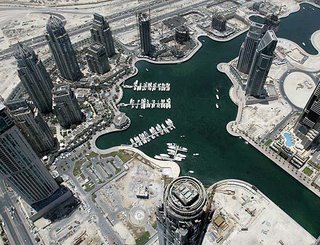

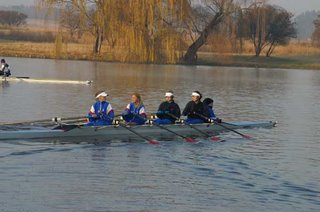

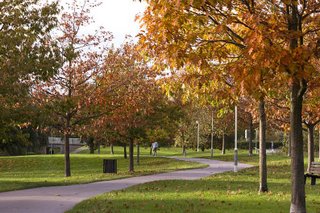 Legislation and Leisure
Legislation and Leisure